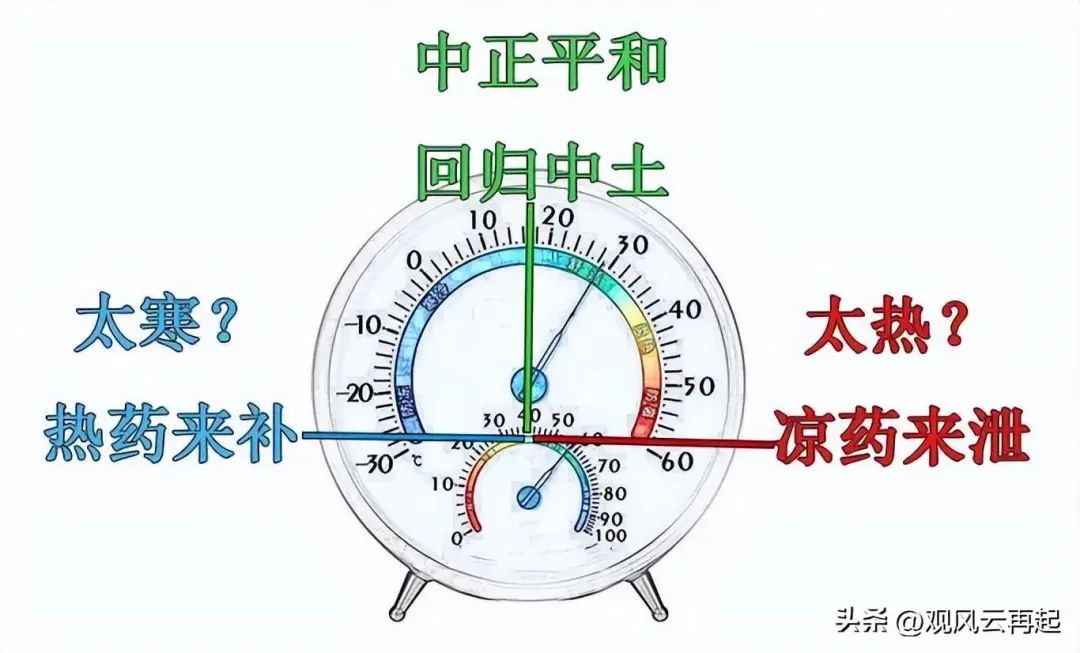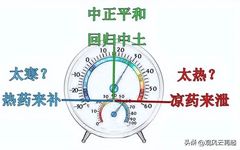Why is traditional medicine in China called “Traditional Chinese Medicine (TCM)”? Most people might immediately respond, “Of course, it’s called TCM because it’s Chinese medicine!” You might think so too.
But you would be mistaken. Traditional Chinese medicine was previously referred to as “National Medicine” or “Han Medicine.” So, how did the term “Traditional Chinese Medicine” come about?
According to research, the term “Traditional Chinese Medicine” first appeared in the Huangdi Neijing (Yellow Emperor’s Inner Canon), which was written during the Spring and Autumn and Warring States periods. Historically, China referred to itself as “Zhonghua” (中华) only after the Han Dynasty, indicating that “Traditional Chinese Medicine” does not mean “the medicine of Zhonghua.”
What did the term “Traditional Chinese Medicine” express at that time?
TCM—actually means “the balance of centrality and harmony, which is the hallmark of a good physician!”
The Han Shu (Book of Han) states: “To increase heat with heat, and to increase cold with cold, is not seen externally; this is a unique loss.” Hence the saying: “If a disease is not treated, it often requires TCM.” Excessive cold or heat, and imbalance of Yin and Yang, are all manifestations of disharmony, with “harmony” being the core concept of TCM. This concept originates from the Yijing (I Ching).
In the human body, our Yin and Yang must maintain a state of balance to avoid illness. If Yin and Yang are imbalanced, numerous diseases will arise! However, throughout the history of TCM, due to differing views on Yin and Yang, two main factions have emerged!These two factions have completely opposing views and have produced master-level figures, and they continue to be at odds to this day.
The Yin Nourishing Faction
The core theory of the Yin Nourishing Faction is “Yang is often in excess, and Yin is often insufficient!”
Regardless of the disease, they use cold and cooling herbs to nourish Yin and reduce fire.
The Yin Nourishing Faction has been established since the Yuan Dynasty and continues to this day, being the largest faction, with at least half of TCM practitioners belonging to this group. The advantage of this faction is its quick results, which is why it has many followers. Its representative figure is:
One of the “Four Great Masters of the Jin and Yuan Dynasties,” Zhu Zhenheng (known as Zhu Danxi), was a renowned physician of the Yuan Dynasty, skilled in medicine, often curing with a single prescription. He strongly advocated the idea that “Yang is often in excess, and Yin is often insufficient.”
His main viewpoint is that the human body has excess Yang and insufficient Yin, as the body’s fire is manifested through various life activities, and “all movement belongs to fire.” When Yang moves, it consumes Yin; when Yin is deficient, Yang becomes exuberant, leading to the depletion of Yin essence, thus advocating for nourishing Yin and reducing fire.
Yang is often in excess has many examples in nature:
(1) In terms of heaven and earth, heaven is Yang, and earth is Yin; heaven is vast while earth is small;
(2) In terms of the sun and moon, the sun is Yang, and the moon is Yin; the sun is always full while the moon is often lacking;
(3) In terms of the human body, the fire of life is Yang, which easily moves erratically, while essence and blood (which have reproductive functions) are Yin, arriving late and leaving early.
These are manifestations of “Yang flourishing and Yin declining,” fully illustrating that Yang is often in excess and Yin is often insufficient.
His theory has had a profound influence, with Ming Dynasty physicians such as Zhao Zhendao, Zhao Yide, Wang Lu, and Dai Yuanli (also known as Dai Sigong) all inheriting his teachings. Others like Yu Bo, Wang Lun, Wang Ji, and Xu Yanchun also accepted his academic thoughts, becoming founders of the Yin Nourishing Faction (Danxi School).
This faction is criticized for the fact that the cold and cooling herbs often harm the spleen and stomach, which are the “foundation of postnatal life.” Therefore, patients treated by them may experience temporary relief, but their vital energy is often damaged, leaving behind hidden ailments.
The Qing Dynasty court physician Huang Yuanyu was once treated with a large amount of bitter cold herbs by the “Clearing Fire Faction,” which harmed his spleen and stomach, leading to hidden ailments, and he died young despite being a famous physician, unable to save himself!
The Fire God Faction
The core viewpoint of the Fire God Faction is “to exalt Yang and belittle Yin”—that is, “Yang is often insufficient, and Yang cannot overcome Yin.”
They believe that if a pot of fire and a pot of water compete, the fire will inevitably be extinguished by the water, indicating that Yang cannot overcome Yin; this is a very simple principle. Therefore, in the human body, Yang is often insufficient, while Yin is often in excess, so their treatment philosophy emphasizes supporting Yang and suppressing Yin, always protecting Yang Qi.
When a person is born, Yang Qi is at its most abundant, but as the body ages, Yang diminishes and Yin increases, leading to Yang being unable to overcome Yin, resulting in illness. As long as Yang Qi is sufficient, a person is strong; when Yin Qi is abundant, a person becomes ill. If a person were purely Yang, they would become an immortal; if purely Yin, they would become a ghost.
This theory has had a profound influence, with the famous Ming Dynasty physician Zhang Jingyue initially studying under the Yin Nourishing Faction but later changing his viewpoint in practice, stating that “Yang is not in excess, and Yin is often insufficient,” strongly advocating for “warming and tonifying,” often using warming tonifying formulas in clinical practice.
In clinical situations, this faction advocates “rescuing the critical and supporting Yang first,” using hot herbs to enhance Yang Qi for any disease, often in large doses.
This faction recently produced an outstanding representative, Mr. Li Ke, who practiced medicine for 50 years, rescuing countless patients who were declared terminal by Western medicine.He is known as “the backbone of TCM.”
He was adept at using Fuzi (Aconite), having used over 5 tons of it in his lifetime, treating over ten thousand patients, and is also known as “Li Fuzi.” This is a clear characteristic of the Fire God Faction’s use of medicine, which heavily relies on Fuzi, a very hot herb with significant toxicity.
The old gentleman often conducted personal experiments; he successfully treated himself after two strokes, but during the third stroke, he was unable to save himself.
This is a notable characteristic of the Fire God Faction, which excels at emergency rescue but is not adept at treating chronic diseases. Most of the critical patients they treat are those with sudden illnesses, such as heart disease or cerebral infarction.
The treatment effects of the Fire God Faction are akin to emergency surgery, temporarily removing patients from danger; however, after escaping danger, they still require the balancing and harmonizing treatment of TCM, otherwise, most patients will still succumb to their original diseases.
Centrality and Harmony is the Middle Way
The Yin Nourishing Faction and the Fire God Faction both err in being overly hot or overly cool, failing to consider the fundamental principle of TCM, which is centrality and harmony.
The saying goes, “If it is hot, cool it; if it is cold, warm it.” The Suwen (Plain Questions) states: “When Yin is balanced, Yang is secret, and the spirit is treated; when Yin and Yang are separated, the essence and Qi are exhausted.”Regardless of the disease, attention must be paid to this balance, especially in chronic diseases, which require gradual adjustment and should not be treated with overly aggressive herbs. The most important thing is to restore the human body to a state of centrality and harmony, which is the balance of Yin and Yang.
There is another saying that TCM is called “Traditional Chinese Medicine” because it believes that humans are born from the complete Qi of heaven and earth, while other animals do not receive it fully. Therefore, animals can have cold-blooded species, like snakes, and some animals are warmer, like dogs or cows. Only humans maintain a temperature similar to nature, so when humans are in a state of centrality and harmony, they will be healthy.
If one deviates from this balance, whether from cold or heat, they will become ill. In treatment, one must follow: “If it is cold, warm it; if it is hot, cool it.” Use warming herbs to treat those who are cold, and cooling herbs to treat those who are hot, restoring them to a balanced state, thus curing the disease.

Source: Observing the Winds and Clouds Again

